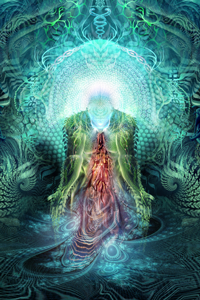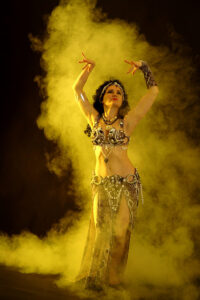[fusion_builder_container hundred_percent=”yes” overflow=”visible”][fusion_builder_row][fusion_builder_column type=”1_1″ background_position=”left top” background_color=”” border_size=”” border_color=”” border_style=”solid” spacing=”yes” background_image=”” background_repeat=”no-repeat” padding=”” margin_top=”0px” margin_bottom=”0px” class=”” id=”” animation_type=”” animation_speed=”0.3″ animation_direction=”left” hide_on_mobile=”no” center_content=”no” min_height=”none”][fusion_text]Is religion sexist?
 It wasn’t until the late 1970s that women were allowed to be ordained as priests in the Episcopal Church, and not until 1994 that they were in the Church of England. It’s still a point of debate in many religious groups. This all begs a deeper question, though: how spiritual can a woman be?
It wasn’t until the late 1970s that women were allowed to be ordained as priests in the Episcopal Church, and not until 1994 that they were in the Church of England. It’s still a point of debate in many religious groups. This all begs a deeper question, though: how spiritual can a woman be?
We hear so much about Jesus, Moses, Buddha, and Mohammed. The great spiritual authorities, it appears, are all men. There’s not much talk of women leading spiritual movements and paving the way. This doesn’t mean they aren’t there – we just have to take a look around and discover what the female side has to say about Reality. There just may be insights essential to our spiritual growth…
WHICH WITCH
We’ve come a long way in bridging equality between the sexes. It’s refreshing to see a lady run for President (whatever the opinions might be about Hillary Clinton). Yet, to give the female perspective the respect it deserves means also honoring the great spiritual teachers of the past who were women.
Women with spiritual talent were called witches in some regions. The word “witch,” and related terms, wasn’t always foul. She might have been revered for her wisdom and healing powers. Though some cultures had categories for malevolent witches, it was the rise of Christianity that really branded them all as sinister. Instead of being seen as women of spiritual knowledge, they were reframed as followers of the Devil.
Men who didn’t bow to Church orthodoxy were also judged and persecuted. Yet, as Brian Pavlac, Professor of History at King’s College, explains:
Some witch hunts did almost exclusively target women, in percentages as high as 95% of the victims.
There may have been many great healers and wise women in Europe who were mislabeled and murdered. We might never know, but if we look to ancient societies, we can find many references to such types of women.
SEERS OF THE ANCIENT WORLD
Ever heard the phrase “Know Thyself”? This famous axiom comes from an inscription at a temple of Apollo in Ancient Greece. A priestess, the Pythia, delivered prophecies at this temple. She’d sit on a tripod over a crack in the earth, from which psychotropic vapors were said to rise. This helped her slip into a trance and dictate premonitions and insights.
 There were many like her, often called sibyls, named after the legendary prophetess, Sibyl, whose prophecies were written and passed down for years. Considered mouthpieces of the Divine, these women were highly respected and consulted by great men, from kings to philosophers. Socrates, himself, said of the Delphi priestess that she was “an essential guide to personal and state development.” He vigorously pursued his life purpose after hearing her words, which led to the birth of Western philosophy’s foundation.
There were many like her, often called sibyls, named after the legendary prophetess, Sibyl, whose prophecies were written and passed down for years. Considered mouthpieces of the Divine, these women were highly respected and consulted by great men, from kings to philosophers. Socrates, himself, said of the Delphi priestess that she was “an essential guide to personal and state development.” He vigorously pursued his life purpose after hearing her words, which led to the birth of Western philosophy’s foundation.
Going further North, we find many parallels in early Scandinavian countries. The seiokonur, like the sybils, were seers and priestesses, most of them female. They were considered the religious leaders of the Viking communities, and are described in the various Norse Sagas. The seiokonur were often consulted in times of conflict, to offer counsel and predictions. They would operate mainly through chanting and prayer, and could also help grant the wishes of petitioners.
If we go South, we see in many African communities that women had revered spiritual roles. They were considered naturally better at channeling and mediumship than men, allowing Spirit to work through them. They also frequently offered prayers and blessings to children, families, and their village. After the African diaspora, traditions such as Voudoun, Candomble, and Santeria evolved, blending African systems with other cultures. In Voudoun, women gain spiritual authority faster than men, becoming what are called Mambos. They heal, make predictions, give advice, bestow blessings, and channel spirits. Women in Voudoun communities are thought to have a great propensity toward spiritual development.
Maybe you’re seeing a trend…In general, women seem especially capable of letting go and opening up to Spirit. Socrates even commented that the Pythia’s success came from her ability to wholly abandon herself to a Higher Power.
It’s clear that women were revered spiritual authorities in many regions of the ancient world. In the next post, we’ll look at a few female Adepts who contributed to the evolution of spirituality.
Spirit In Transition is a personal development community which offers Spiritual Development Classes & Events facilitated by a Life Coach. We help everyday people break through their own blockages and live an extraordinary life, on purpose and powerfully. Call: 503-415-9533 or come to an event to get involved.
[/fusion_text][/fusion_builder_column][/fusion_builder_row][/fusion_builder_container]

